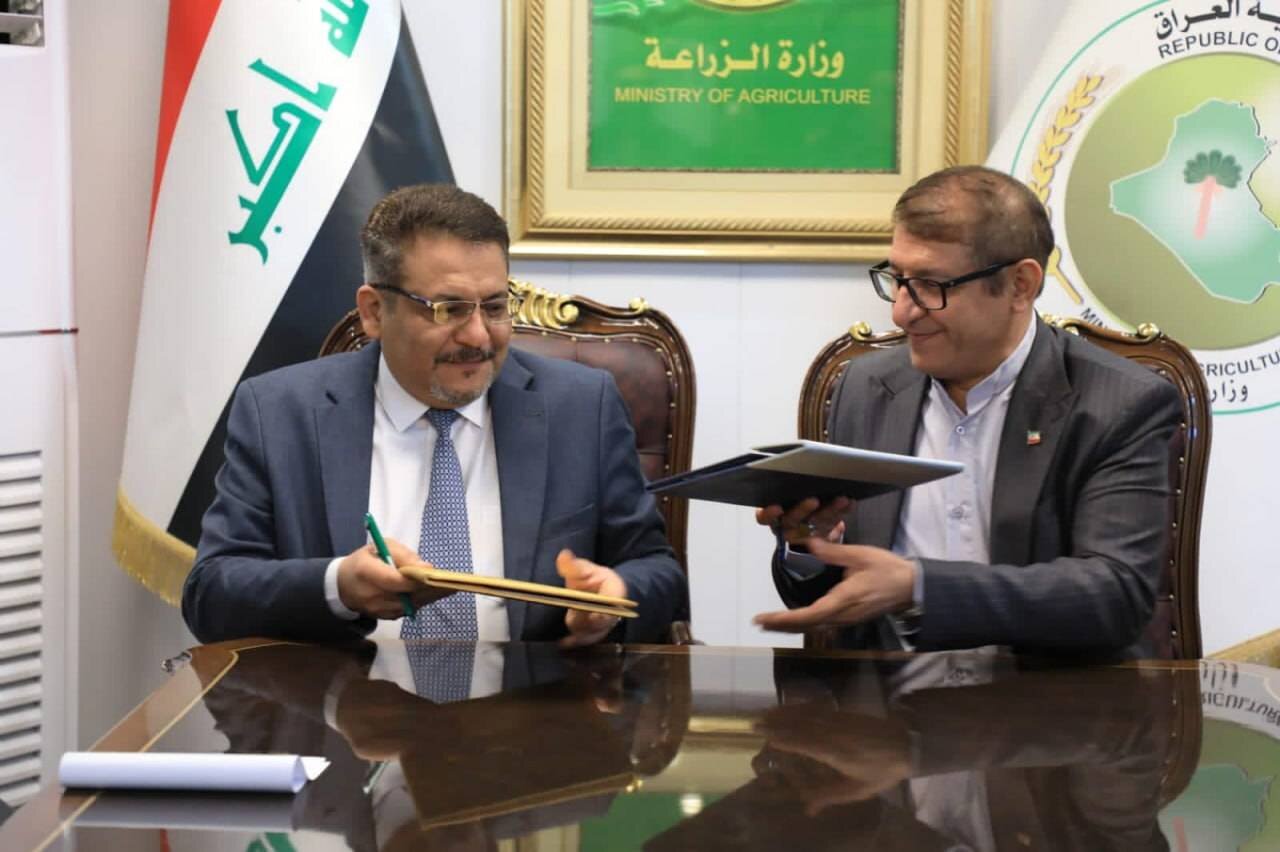Tehran, Baghdad join hands to combat sand and dust storms

TEHRAN – Iran and Iraq signed an agreement to implement joint pilot plans to deal with sand and dust storms in four provinces of Iraq and two provinces of Iran.
On his trip to Baghdad, Ali-Mohammad Tahmasbi, the secretary of the national policymaking headquarters for dealing with sand and dust storms, met with Mithaq Abdul-Hussein Obaid, the technical undersecretary of Iraq’s Ministry of Agriculture, agreed on jointly implementing the plans in the four Iraqi provinces of Dhi Qar, Al-Muthanna, Wasit, and Maysan, as well as the two Iranian provinces of Ilam and Khuzestan within the next two months.
The two sides also discussed different possible ways to deal with desertification, reduce the impacts of climate change, remove barriers to food security, and manage sand and dust storms, IRIB reported.
Tahmasbi emphasized the need to boost cooperation in this regard, announcing Iran’s readiness to study cases of desertification in border areas.
Obaid, for his part, said that solving the problem of sand and dust storms in the region requires the cooperation of West Asian countries, including Iraq, Kuwait, and Iran.
On Tuesday, August 1, a delegation led by the secretary of the national policymaking headquarters for dealing with sand and dust storms started a four-day visit to Iraq to follow up on previous agreements in this regard.
The visit aimed to implement the sub-regional action plan to deal with sand and dust storms, form a regional technical working group, and carry out joint projects to curb hotspots of sand and dust storm, IRNA reported.
Tahmasbi said bilateral and multilateral memorandums of understanding have been signed with Iraq, but unfortunately have not yet been implemented.
The SDS phenomenon has been plaguing the country for several years and has caused problems in many provinces.
According to studies, eight large sand and dust storm hotspots stretching to 270 million hectares in neighboring and Persian Gulf countries are affecting Iran.
Regional maps show that Saudi Arabia produces the highest level of particulate matter, followed by Iraq, Syria, Kuwait, and the UAE, respectively.
The Department of Environment will hold five international meetings in the current Iranian calendar year that started on March 21, DOE chief Ali Salajeqeh has said.
“At least five international meetings will be held this year, one of which is the conference on combating sand and dust storms,” he added, IRNA reported.
One of the approvals of the regional meeting of environment ministers, which was held in Iran last summer, was the establishment of a regional dust organization, he highlighted.
“Environmental diplomacy is the main priority for the country's political diplomacy, so holding the conference on combating sand and dust storms is important for us.”
So far, 11 meetings of the national headquarters for policymaking and controlling dust storms have been held and the results of these meetings should be evaluated and made public, he stressed.
In the field of diplomacy, the Department of Environment has held meetings with neighboring countries to the extent that Egypt has also announced its readiness to attend the Tehran meeting, he highlighted.
He pointed out that a delegation from Iran will travel to Iraq in the near future to discuss the issue of sand and dust storms in order to make decisions to deal with the problem.
In July 2022, Tehran played host to a conference of ministers and officials from 11 countries, aiming to boost cooperation for resolving extant environmental problems, especially sand and dust storms.
Environment ministers of Iraq, Armenia, the United Arab Emirates, Oman, Syria, and Qatar, as well as deputy ministers of Azerbaijan and Turkmenistan along with delegations from Turkey and Uzbekistan, participated in the event which was held with the theme of “Environmental Cooperation for a Better Future.”
MT/MG
